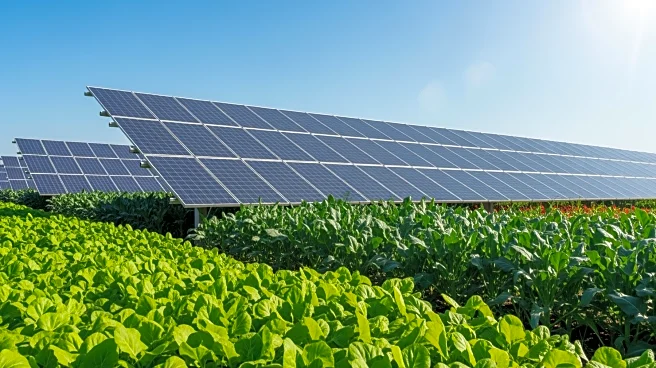What's Happening?
Enel, a global energy firm, has commenced operations at its GulfStar solar power plant in Wharton County, Texas. This facility, with a capacity of 556 megawatts, is Enel's largest in the U.S. and incorporates a 355-megawatt battery energy storage system
(BESS). The plant is notable for integrating agrivoltaics, allowing sheep to graze among the solar panels, which helps with vegetation management and soil enhancement. This initiative is part of a broader trend in Texas, where solar power is rapidly expanding despite political challenges. The state's unique grid system and economic policies have facilitated this growth, making Texas a leader in both wind and solar power.
Why It's Important?
The GulfStar project highlights the growing role of renewable energy in the U.S. energy landscape, particularly in Texas, a state traditionally known for its oil and gas industries. The integration of agrivoltaics not only supports sustainable energy production but also benefits local agriculture by providing new revenue streams for farmers. This development underscores the potential for renewable energy projects to contribute to economic resilience and environmental sustainability. The use of battery storage systems further enhances grid reliability, addressing challenges posed by rising energy demand and extreme weather conditions.
What's Next?
The solar grazing movement is expected to expand, with Enel's contract involving 6,000 sheep managing vegetation across over 10,000 acres. This approach is gaining traction as a cost-effective and environmentally friendly solution for solar power maintenance. The American Solar Grazing Association is actively promoting this practice through workshops and certification courses, indicating a growing collaboration between solar developers and the agricultural sector. As state policymakers increasingly support agrivoltaics, similar projects may emerge across the U.S., potentially influencing federal energy policies.
















